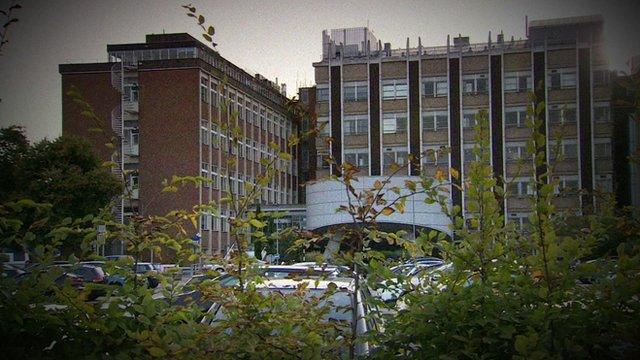Addenbrooke's ex-chief: Breaking even would have meant A&E closures
- Published
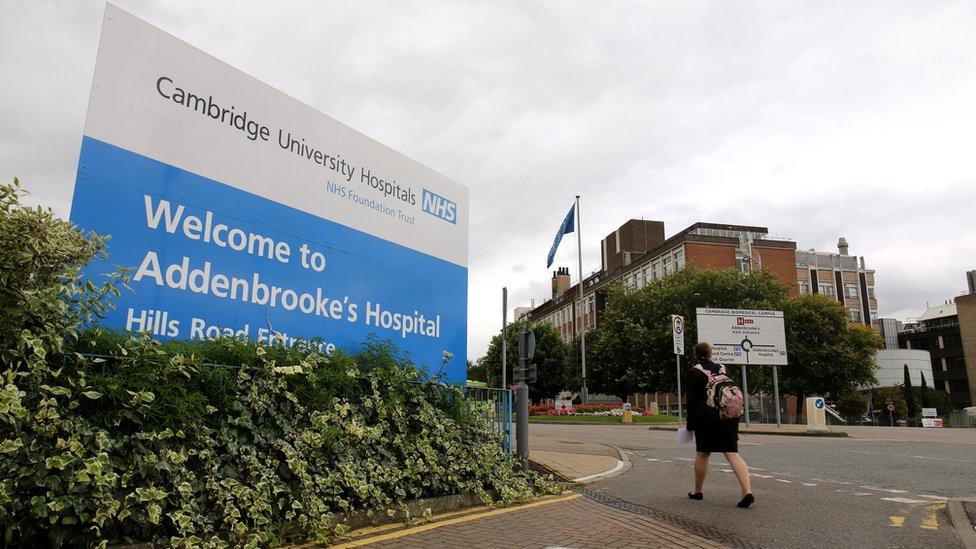
Cambridge University Hospitals was rated "inadequate" by the Care Quality Commission and put into "special measures"
A major hospital would have had to close its accident and emergency department on nine days in every 10 to break even, an ex-chief executive said.
Keith McNeil quit Addenbrooke's Hospital, which faces a £64m deficit in 2015-16, in September.
He said a funding formula which reimbursed a hospital only 30% of the cost of A&E beds, compared to planned surgery, had had an impact.
The government said hospitals must "live within their means".
The Care Quality Commission, which rated Addenbrooke's as inadequate in September, declined to reply to Dr McNeil's comments, but said the Cambridge hospital's trust had agreed with its findings and recovery steps.
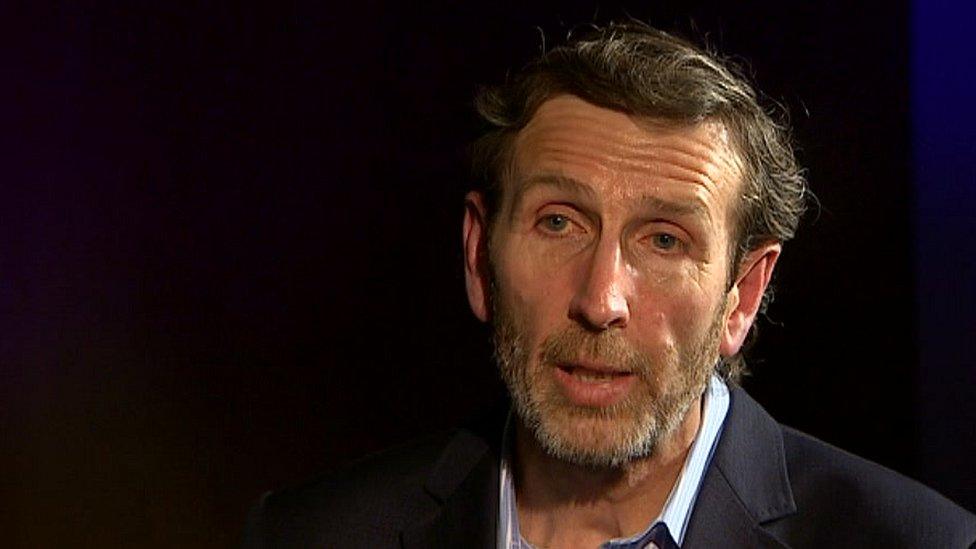
Keith McNeil: "A busy day and night in the A&E would often lead to most of our planned surgery being cancelled."
Dr McNeil, a transplant specialist who took over the reins at Addenbrooke's in 2012, said the funding situation was unsustainable and did not fairly reimburse the hospital for the work it performed.
He said the hospital had a high number of admissions from A&E because of the nature of the ageing population it serves, and because of its role in delivering complex specialist care such as transplants, major trauma, cancer and neurosurgery.
Dr McNeil said because of the shortfall in funding caused by the high number of A&E beds, Addenbrooke's would need to use 210 beds each day of its 850 adult beds for planned surgery (which receives 100% of the cost) "to break even".
Furthermore, if Addenbrooke's did "ring fence" these 210 beds, he said, it would "mean shutting the emergency room nine days out of 10".

Addenbrooke's recent troubled history
The trust's chief executive, Keith McNeil, stepped down suddenly, citing "a number of very serious challenges, external"
Chief finance officer Paul James also quit ahead of the Care Quality Commission's report
This came months after paedophile doctor Myles Bradbury was jailed for abusing 18 boys in his care at Addenbrooke's

Dr McNeil said: "Every day we were juggling to see which patients could go ahead with elective (planned) surgery and which wouldn't, depending on how many beds were available. A busy day and night in the A&E would often lead to most of our planned surgery being cancelled the next day."
He added that much of the specialist surgery at Addenbrooke's often cost more than the set fee (tariff) the NHS reimburses the hospital with. This amounts to an additional funding shortfall for work performed of approximately £18.5m per year.
A Department of Health spokesperson said: "We know finances are challenging for certain parts of the NHS - that's why we are giving the health service the £10bn extra during this Parliament it has said it needs.
"However, trusts must also show tight financial grip and live within their means."
An interview with Dr McNeil can be seen on Inside Out on BBC One in the East of England at 19:30 BST on Monday, and available on iPlayer afterwards.
- Published22 September 2015
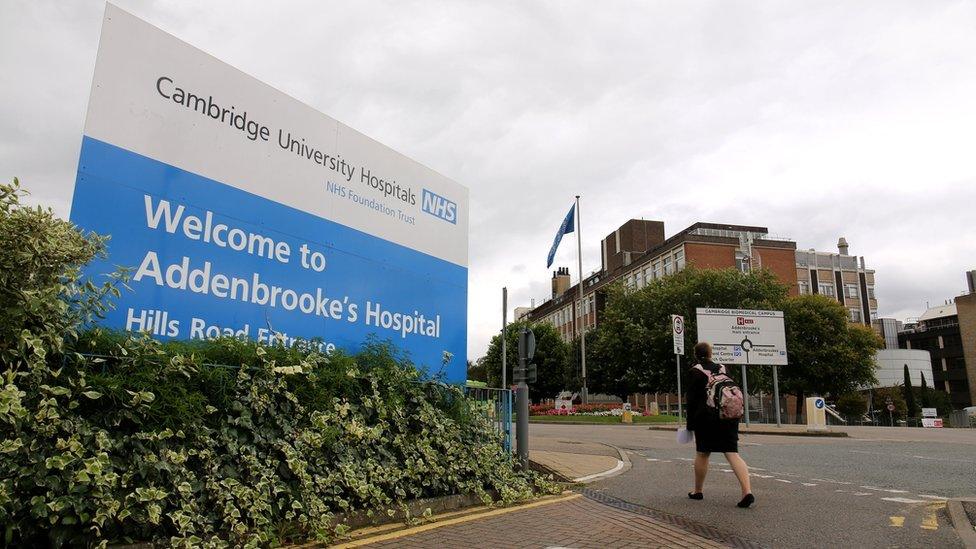
- Published22 September 2015
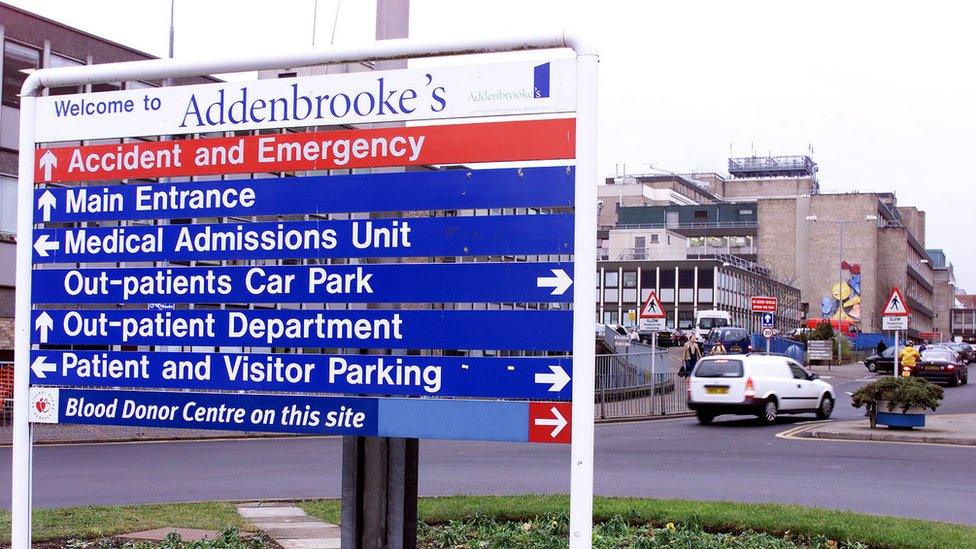
- Published22 September 2015
- Published22 September 2015
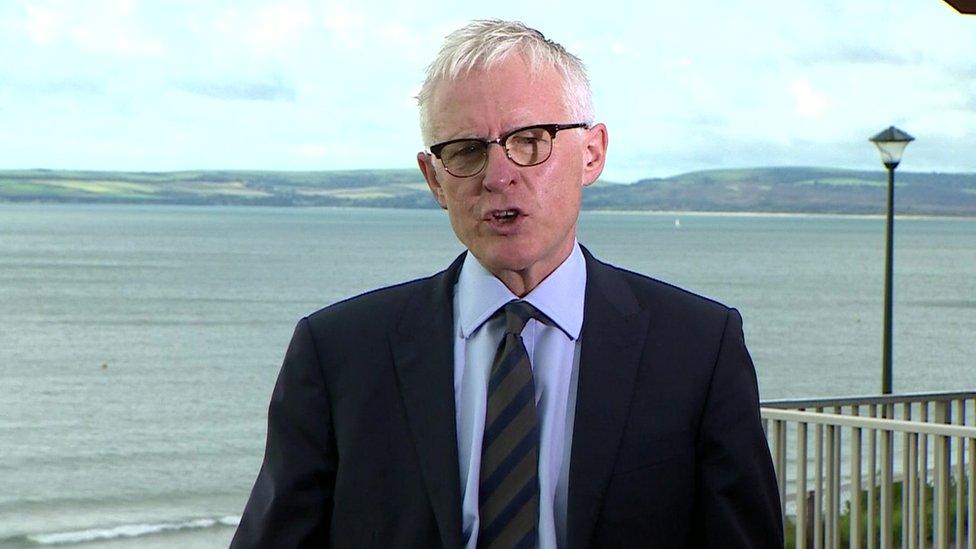
- Published18 September 2015
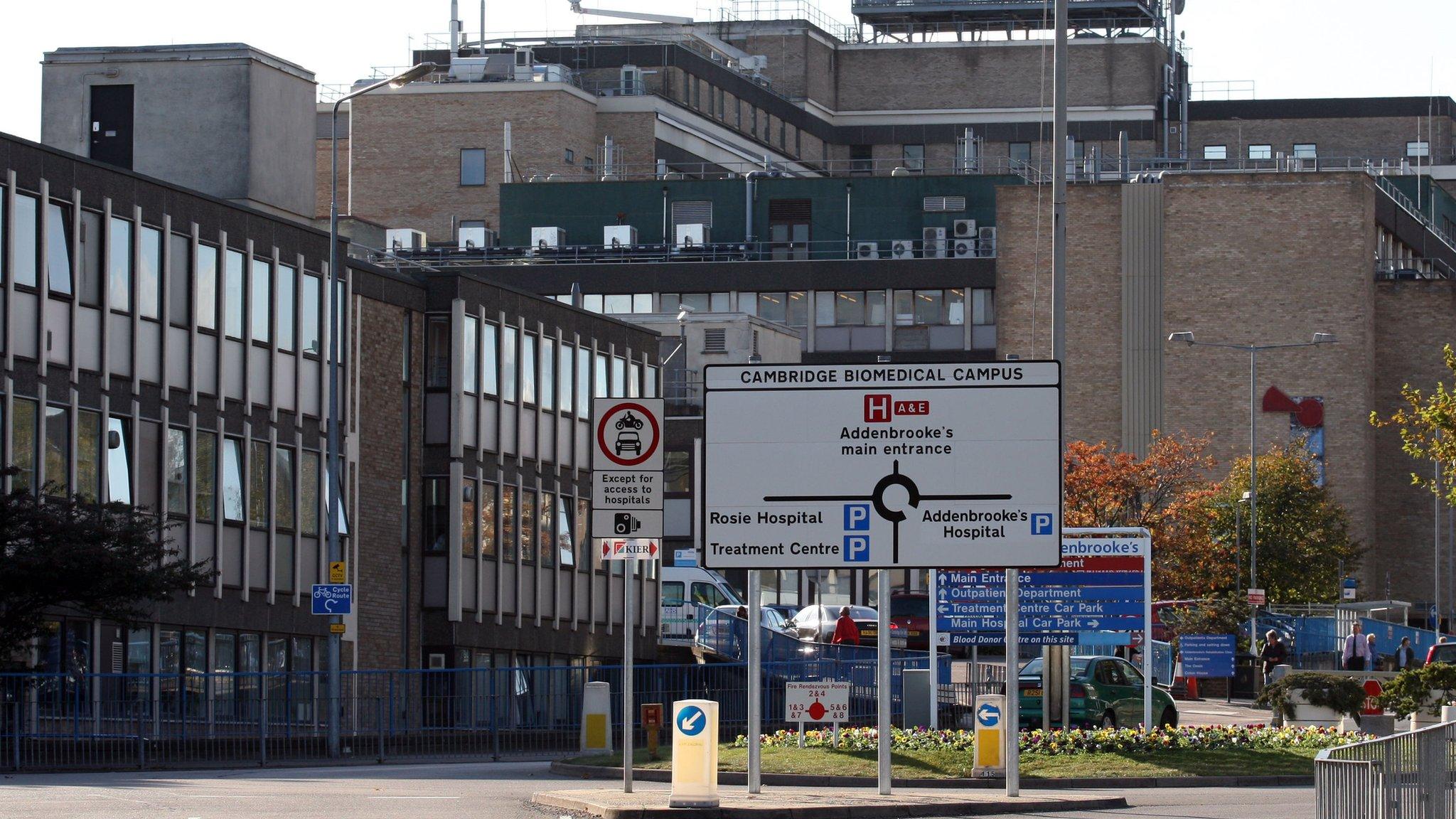
- Published17 September 2015

- Published14 September 2015

- Published14 September 2015

- Published31 July 2015
.jpg)
- Published28 July 2015
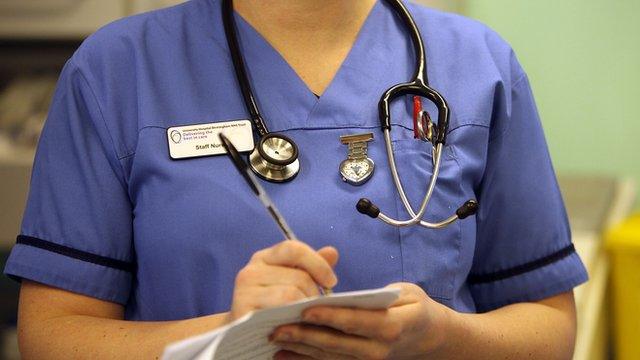
- Published7 January 2015
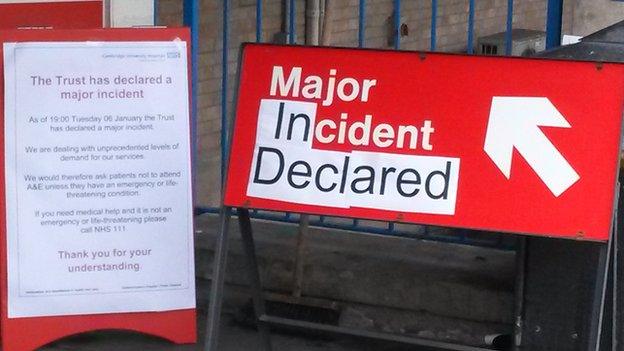
- Published7 January 2015
